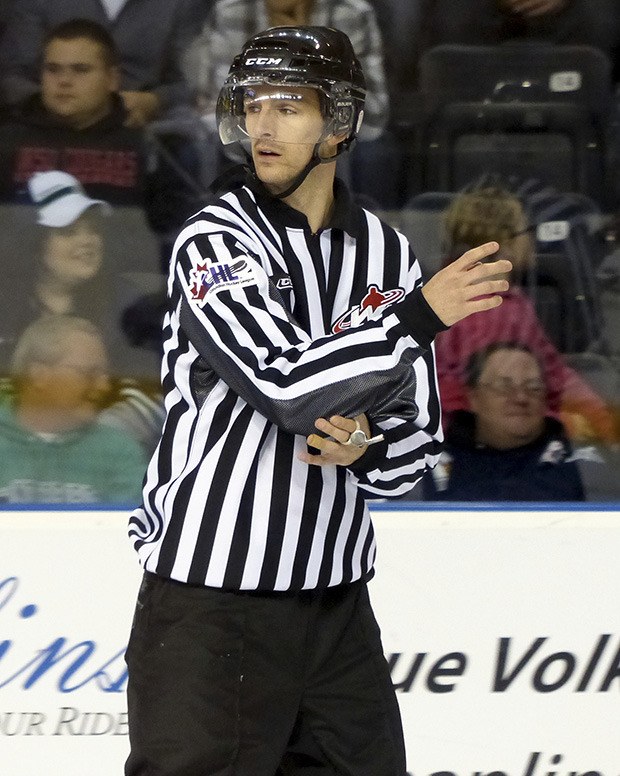When you ask a hockey fan about their dream position, the answer most likely would be goalie or forward for his favorite team. But not Al Creigh.
Creigh wants to be an NHL referee, a member of the often discounted “third team” on the ice.
Creigh, a 26-year-old aeronautical engineering student at the University of Washington from Sumner, first started officiating at the age of 15 for midget league games at the Kent Valley Ice Centre. He quickly ran into pressure from coaches and parents.
“I completely hated it when I first started doing it,” he says with a chuckle. “Sometimes coaches and players and even some of the parents can be a little hostile, so it can be intimidating for a young guy to be out there.”
During his first few games, Creigh said the pace reminded him of “a YouTube movie” that was constantly buffering, and he struggled to keep up with the rapid pace.
Timing each call and keeping up with the game can be one of the hardest skills for a referee to develop. He has a limited window of time available to make each call, but the ramifications of that call can change a game or even a career.
“Whenever I do make a call, I have a split-second decision to make a call that everyone has a lifetime to look back on, so I make the best decision that I have to look back on,” Creigh said.
This is Creigh’s first season officiating in the Western Hockey League (WHL), and he’s worked seven Seattle Thunderbirds games at the ShoWare Center.
As each game begins, Creigh takes 20 to 30 seconds to do a lap around the rink and warm up, and he says that’s his time to think “‘you did it man, you’re out here,’ and that’s kind of a cool experience.”
While he’d love to referee professionally in the NHL, he says he’ll still apply the skills he’s developed as a WHL ref — confidence, leadership and conflict resolution — in an engineering profession.
“When I first started to do the WHL referee, I put some thought into it,” he says “and one of the things that I think as I go up in this profession, it builds character.”
One of these character traits is simply leadership through managing players and coaches after making controversial calls, he says.
“Whenever it’s a tight call, someone’s always going to have something to say about it,” he says.
But he’s found that with the right rapport, players will approach him for advice about what regulation they’ve broken and how to avoid it in the future.
Creigh also notes that working as a rink official has taught him confidence, from the exposure to hostile coaches, players and fans. He’s learned how to control his emotions and isolate himself from the calls to keep the attacks from feeling personal.
As he built relationships with coaches and players, much of the hostility diminished and players started to see him for his role in the game.
“When players get upset, they don’t see you as a person, they see you as a referee,” he says. “I’m just the referee, and none of these attacks are directed specifically towards me.”
Finally, working as an official has given him the kinds of problem-solving skills he hopes will be useful in his future work in aerospace. Managing a steamed 250-pound forward is significantly different than a Boeing employee.
“If I can deal with an angry guy that outweighs me by 30 pounds with a stick in his hand, I can probably handle a couple engineers,” Creigh says.
Talk to us
Please share your story tips by emailing editor@kentreporter.com.
To share your opinion for publication, submit a letter through our website https://www.kentreporter.com/submit-letter/. Include your name, address and daytime phone number. (We’ll only publish your name and hometown.) Please keep letters to 300 words or less.

